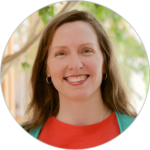New Member Spotlight: HudsonAlpha Institute for Biotechnology
UIDP welcomes the HudsonAlpha Institute for Biotechnology as a new member organization. UIDP spoke with Mary Shirley-Howell, director of business recruitment, and Percy Goode, director of business development, about HudsonAlpha’s goals for membership in UIDP. HudsonAlpha has a three-fold mission of conducting genomics-based research to improve human health and wellbeing; sparking entrepreneurship and economic development; and providing educational outreach to nurture the next generation of biotech researchers and entrepreneurs, as well as to create a biotech literate public.
UIDP: What is HudsonAlpha hoping to gain from this membership with UIDP in the coming year?
Goode: HudsonAlpha is a nonprofit research institute. Gaining partnerships and letting people know the relevant resources we have and how we might collaborate is important. We are different from a lot of organizations because of our mission to translate the power of genomics into real-world results. Our key research areas are in genomics, which includes cancer, a lot of work in rare diseases, and orphan diseases. But about a third of what we do is in the plant and agriculture space. Our agriculture team is working on biofuels, how to create a more sustainable world, disease resistance, and drought tolerance.
Shirley-Howell: We’re neither a university nor industry, so we’re looking for partners where our sequencing expertise can support a range of research and grow companies who may need access to this capability. We have a huge bank of gene sequencers, which is not a common resource to have on a university campus or corporate R&D center. We’re looking to put those to use to fulfill our mission to develop and apply scientific advances to health, agriculture, learning, and commercialization.
For example, plants are more complicated to sequence than humans. Researchers may need a new genetic map for a plant they are studying. We can be a collaborator to do some of the genetic sequencing pieces. Or if a startup is working to engineer an organism for bioprocessing or therapeutic purposes, our sequencing services can help identify how to do that. We want to do more to leverage high-quality gene sequencers that researchers and startups may not have ready access to. We can partner together better.
UIDP: What are the current challenges that HudsonAlpha is facing in the development of university-industry partnerships?
Shirley-Howell: Our biggest challenge is awareness about HudsonAlpha among those outside of Huntsville, Alabama. Corporate partners are more likely to think of Boston or the research triangle or a handful of other areas for this expertise; Huntsville is known as the Rocket City, not the DNA city. But we’re making significant investments and great strides in knowledge generation here. Awareness to potential partners is a challenge I would like to tackle with our UIDP membership.
Goode: We’ve had success from our plant breeding program, which was part of a joint research collaboration with a university and our ag team. We want to work with UIDP members to propel the science forward faster. We’re an independent institute that’s not tied to a single health system or medical center, which allows us to work with anyone where there is an alignment.
UIDP: Please share any innovative ways that HudsonAlpha is making an impact on U-I interactions.
Goode: In the human health area, we launched the HudsonAlpha Health Alliance in 2019, partnering with employers, health systems, and communities, and we’ve worked with Auburn University, Miles College, Drake State University, and other institutions so they can offer genetic testing as a wellness benefit. In a 2018 survey, the Society for Human Research Management found that 18% of employers are using genetic testing as a wellness benefit. That’s a way we’re partnering with university partners to make a real difference on these campuses.
Shirley-Howell: The two other mission areas are education about genomics and economic development. We’re looking at increasing literacy about what genes do and what they are, including educating the general public and the scientific community about everything from personalized medicine to understanding plant breeding science versus GMOs.
In terms of economic development, we are an incubator for companies in life sciences where we nurture and house companies with the potential to produce great societal benefit. We have between 45 and 50 companies on campus now that range from single person LLCs to housing the global headquarters of a company that has hundreds of employees all around the world.
Goode: Fostering small companies and partnering with them speeds the pace of innovation. Our economic development team is key to that work and opens pathways to partner with other entities
UIDP: Please tell us about a particularly successful project or partnership.
Goode: We mentioned the HudsonAlpha Health Alliance that is offering genetic testing as a wellness benefit, especially with HBCUs. We are very intentional about what we do with the data; it isn’t sold. We are offering individuals their information so they can be their own advocates. Forging those relationships of trust with these universities is a big win. Miles College was our first partner, and they took the informational lead with their president doing a video explaining why they were doing this and how the data can empower individuals.




